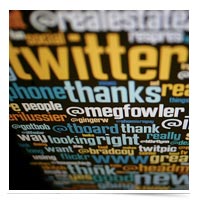 Twitter is an increasingly popular method for following cutting edge news and tracking what thought leaders in a wide range of categories are interested in themselves. For most people, though, Twitter is a little baffling. What do I post? How often do I post? What should I do? Who even cares?
Twitter is an increasingly popular method for following cutting edge news and tracking what thought leaders in a wide range of categories are interested in themselves. For most people, though, Twitter is a little baffling. What do I post? How often do I post? What should I do? Who even cares?
Though many agents have yet to dive into Twitter, we thought you might find this article in The Atlantic useful if you’re thinking of making the plunge. From the Atlantic Article:
“”Who Gives a Tweet: Evaluating Microblog Content Value” is the culmination of a year’s worth of analysis conducted by the researchers Paul Andre of Carnegie Mellon, Michael Bernstein of MIT, and Kurt Luther of Georgia Tech as they set to find out what separates value from vagary in a Twitter post.”
The upshot of the report offers the following advice:
Old news is no news: Twitter emphasizes real-time information, so information rapidly gets stale. Followers quickly get bored of even relatively fresh links seen multiple times.
Contribute to the story: To keep people interested, add an opinion, a pertinent fact or otherwise add to the conversation before hitting “send” on a retweet.
Keep it short: Twitter limits tweets to 140 characters, but followers still appreciate conciseness. Using as few characters as possible also leaves room for longer, more satisfying comments on retweets.
Limit Twitter-specific syntax: Overuse of #hashtags, @mentions and abbreviations makes tweets hard to read. But some syntax is helpful; if posing a question, adding a hashtag helps everyone follow along.
Keep it to yourself: The cliched “sandwich” tweets about pedestrian, personal details were largely disliked. Reviewers reserved a special hatred for Foursquare location check-ins.
Provide context: Tweets that are too short leave readers unable to understand their meaning. Simply linking to a blog or photo, without giving readers a reason to click on it, was described as “lame.”
Don’t whine: Negative sentiments and complaints were disliked.
Be a tease: News or professional organizations that want readers to click on their links need to hook the reader, not give away all of the news in the tweet itself.
For a look at the data and links to other interesting Twitter resources, read the entire article online:


